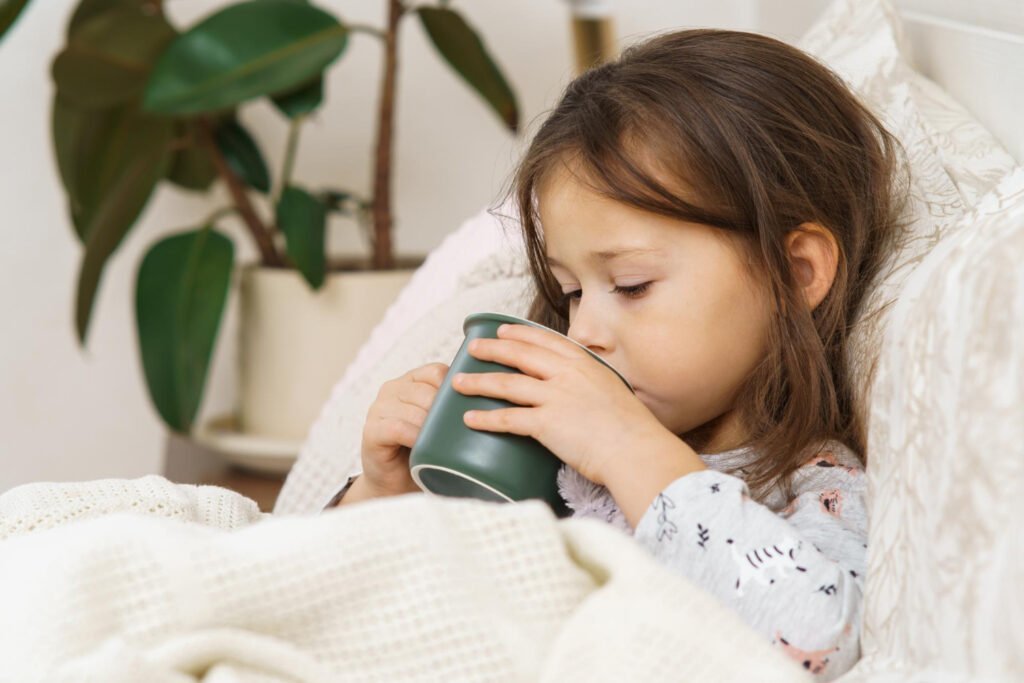The Secret Ingredient to a Speedy Recovery
When your little one is feeling under the weather, every parent wonders: what to feed kids when sick? The right nutrition can make all the difference! Proper food choices not only help in recovery but also comfort and soothe your child during tough times. Let’s dive into the essentials of feeding sick kids and discover delicious options that promote healing!
Understanding What to Feed Kids When Sick
Knowing what to feed kids when sick is crucial. Proper nutrition significantly impacts their recovery process. When children fall ill, their immune systems are stressed, requiring specific nutrients to bolster defenses and promote healing. Balanced meals and hydration are key components in supporting immune function.
Nutritional Needs During Illness
One critical aspect of nutrition during illness is maintaining a consistent intake of vitamins and minerals. For example, vitamin C enhances immune response, while zinc plays a role in cell function and inflammation reduction. Proteins are essential for tissue repair and immune cell production. These nutrients collectively contribute to a shorter, less severe sickness period for children.
Hydration Matters!
Hydration plays a vital role in a sick child’s recovery. Illness often leads to fluid loss due to fever, sweating, vomiting, or diarrhea. Replenishing these fluids helps alleviate dehydration and ensures that bodily functions continue smoothly. Parents should offer water, clear broths, and oral rehydration solutions to keep their children hydrated.

Common Symptoms Affecting Appetite and Digestion
When children fall ill, symptoms like fever, nausea, vomiting, diarrhea, and sore throat can diminish appetite and alter nutritional needs. Here’s how to tackle these challenges with smart food choices.
- Fever
A fever often results in reduced appetite. Offer light broths, fruit juices, or soft foods like mashed potatoes or applesauce—these are easy on the stomach and provide nourishment.
- Nausea and Vomiting
For nausea and vomiting, bland foods are best. Think crackers, dry toast, or rice—these options minimize stomach irritation. Small, frequent meals can prevent overwhelming the digestive system.
- Diarrhea
Diarrhea diminishes appetite and leads to dehydration. Focus on hydration with oral rehydration solutions or diluted fruit juices. Solid foods like the BRAT diet (bananas, rice, applesauce, toast) are gentle on the digestive tract.
- Sore Throat
Sore throats make swallowing painful. Soft foods like yogurt, ice cream, and smoothies can offer relief while providing essential nutrients. Warm soup or herbal teas soothe the throat and provide hydration.
General Guidelines for Feeding Sick Children
Feeding sick children can be challenging. Here are some tips on what to feed kids when sick:
- Hydrate First: Keep your child hydrated with water or diluted juices. Ice chips or popsicles can be more appealing.
- Small Portions: Offer small meals throughout the day instead of large ones.
- Listen to Preferences: Allow your child some choice in what they eat; this can improve their willingness to eat.
- Be Patient: If they have a favorite nutritious food that’s gentle on the stomach, offer it.
- Calm Environment: Create a stress-free mealtime atmosphere; pressure can negatively impact appetite.
Age-Specific Recommendations
Infants (0-12 months)
For infants, continue with breast milk or formula for essential nutrients and antibodies. In cases of mild illness, increased frequency of breastfeeding or formula feeding can help keep them hydrated and nourished. For those already introduced to solids, offering easily digestible foods like mashed bananas or pureed carrots can be beneficial.
Toddlers (1-3 years)
Focus on hydration with clear soups and hydrating fluids like water and diluted fruit juices. Soft foods such as plain rice, applesauce, and steamed vegetables are gentle on the stomach and easier to manage.
Preschoolers (4-5 years)
Offer a variety of soft foods, such as mashed potatoes or scrambled eggs, that cater to their appetite and nutritional needs. Incorporating vegetables in mild forms ensures they continue receiving necessary vitamins without overwhelming their digestive systems.
School-aged children (6-12 years)
School-aged children usually have more varied diets; however, when they fall sick, the emphasis should be on balanced meals that are easily digestible. Nutrient-rich options like oatmeal, lean proteins (such as chicken or fish), and vegetable soups are recommended. Encourage small portions throughout the day rather than large ones to avoid overwhelming their digestion.

Foods for Specific Symptoms
When considering what to feed kids when sick, tailor meals based on symptoms:
- Fever: Soups and broths help prevent dehydration while providing nourishment.
- Nausea: Stick with the BRAT diet—bananas, rice, applesauce, toast—and clear fluids that are easy on the stomach.
- Diarrhea: High-soluble fiber foods such as oatmeal help firm up stool while avoiding dairy products that could aggravate symptoms.
- Sore Throat: Warm teas with honey soothe discomfort; soft foods provide necessary nutrition without irritating the throat.
Recommended Products for Feeding Kids When Sick
To support your child’s recovery during illness, consider incorporating the following products into their diet and care routine:
- SmartyPants Kids Multivitamin Gummies and Fiber Supplement: These delicious gummies provide essential vitamins and fiber to help boost your child’s immune system and maintain digestive health.
- Culturelle Kids Chewable Daily Probiotic for Kids: Probiotics are crucial for gut health, especially during or after an illness. These chewables can help restore balance in your child’s digestive system.
- Electrolyte Drinks: Keeping your child hydrated is essential during sickness. Electrolyte drinks replenish lost fluids and electrolytes, ensuring they stay hydrated while recovering.
- Prodyne Fruit Infusion Flavor Pitcher: Encourage hydration with this pitcher that infuses water with natural fruit flavors. It makes drinking water more appealing for kids!
- HAPPY TOT Organic Stage 4 Fiber & Protein: This organic baby food is packed with fiber and protein, making it a nutritious option for toddlers who need gentle meals during recovery.
- Instant Soup Mix: Easy to prepare and comforting, instant soup mixes provide warmth and nourishment when your child needs it most.
- Magic Bullet Blender: Perfect for making smoothies or pureed soups, this compact blender helps you whip up healthy meals quickly.
- Healthy Cookbook: A great resource for parents looking to create nutritious meals for their kids, this cookbook offers recipes that cater to various dietary needs.
- Juicing Recipes: Juicing can be a fun way to incorporate fruits and vegetables into your child’s diet. This book provides creative recipes that are both tasty and healthy.
- Cozy Luxury Blanket Microfiber: Keep your child comfortable while they recover with this soft blanket that provides warmth and comfort.
- Heating Pad for Pain Relief: A heating pad can soothe aches and pains associated with illness, providing extra comfort during recovery.
- Sippy Cups for Toddlers Kids: Fun sippy cups encourage kids to drink more fluids, making hydration easier during sick days.
These products can significantly aid in your child’s recovery process by providing essential nutrients, hydration, comfort, and convenience.

Special Considerations & Conclusion
When determining what to feed kids when sick, parents must give special attention to allergies and dietary restrictions. Offering nutritious, allergen-free options requires a careful selection of ingredients.
Consulting a pediatrician is also vital for persistent symptoms that do not improve with dietary adjustments or show worsening trends; they can provide tailored suggestions based on specific health needs.
In conclusion, what to feed kids when sick requires a balanced combination of maintaining hydration while ensuring they receive necessary nutrients through easily digestible options such as bananas or plain rice, which can be beneficial for recovery efforts! Adopting these strategies with care and compassion during tough times at home will ensure your little ones bounce back quickly!
For more parenting tips, check out my post at Mamawithlove: Mastering Newborn Care: Essential Tips and Things to Do with a Newborn! where I share valuable insights on caring for newborns!





































































